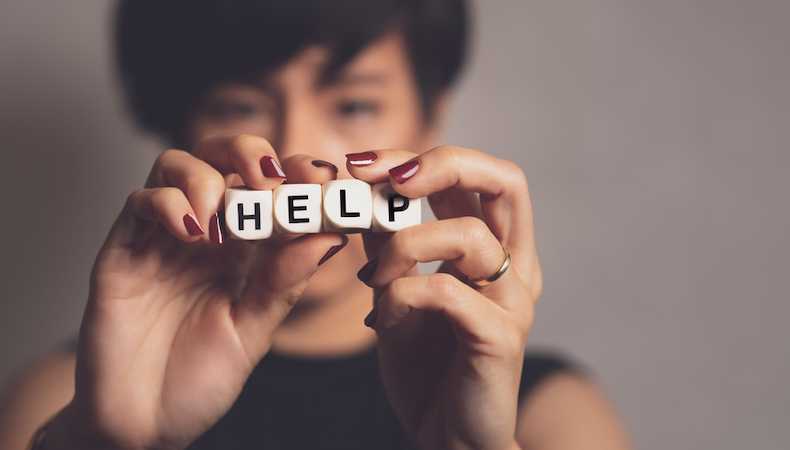5 ways employers can support domestic abuse survivors
The way mental and physical health is spoken about and supported in the workplace has been transformed.
But there’s an issue that receives little attention in the workplace, yet affects more than 2.1 million people in the UK every year: domestic abuse.
Domestic abuse is a subject that few people are like talking about, and many people probably don’t know how to talk about it in the workplace.
I was in an on-and-off abusive relationship for nearly four years. For most of those years, there was no violence, but intense emotional and mental abuse. It was hell.
The abuse escalated until, eventually, my partner assaulted me, and nothing in my life was ever the same after that. The relationship soon ended.
Knock-on effect
Everything in my life became difficult to manage – especially work. I tried to leave my problems at the office door. I told my employers, some of whom were supportive, others not at all.
One day I was at a work event while waiting to hear how my ex-partner had pled in court. I told my manager I would sit at the back of the room in case the police called and I needed to leave. Her response was, “Can’t you just wait until the event is over?”
My assault didn’t feel like something anyone at work wanted to hear about or take seriously, despite the involvement of the police and the Crown Prosecution Service. For about six months, I had a panic attack in the office bathroom every day.
So, what would have made a difference for me in the workplace?
1. Spotting the obvious and hidden signs
When it comes to domestic abuse, there can be obvious, physical signs like unexplained bruises, cuts, or other injuries. But some signs are not so easy to see – like calling in sick, running late, leaving early, low motivation and productivity levels, and taking private calls during the day to name a few.
If you do spot the signs someone may be in an abusive relationship, don’t brush it off. Trust your gut feeling.
By staying vigilant, following your instinct and approaching the situation with concern and care, you can provide crucial support or even just offer a shoulder to cry on – all of which go a long way.
2. Empathy counteracts shame
I needed empathy from my employer for what I had gone through, but my experience was clinical. To everyone else, it just looked like ‘relationship problems’. This mindset often means people forget there is a crime taking place.
Had I felt my employers and colleagues empathised with the situation I was in, I would have felt less ashamed and more psychologically safe at work.
The best way you can convey your empathy is by listening and validating how someone feels. Never underestimate the difference a single compassionate conversation can make and how safe it can make a person feel.
3. The power of practical help and support
Allowing survivors time off is important to their recovery. Trauma is overwhelming and can lead to problems with tasks such as planning, strategising and time management – more commonly known as executive dysfunction.
Giving survivors the flexibility to work from home (or a safe location), or to work part-time or shorter hours can help prevent them from being overwhelmed and empower them to manage their wellbeing in a way that works for them.
Offering mental health support, services and resources is absolutely paramount. It would have significantly helped me while I was in ‘survival mode’. This is one reason why organisations should approach wellbeing through a preventative lens.
Having a diverse range of mental health first aiders within the business can provide immediate help and shows survivors they have an ally at work – someone who is there to support them.
4. Education, awareness and knowledge
Workplaces need to educate themselves about domestic abuse, from training on how to spot the signs of different types of abuse, to how to communicate with and support survivors.
At work, we can also help drive awareness of Clare’s Law, for example, which allows the police to disclose if a partner has a history of abusive behaviour, or confidential outlets like Women’s Aid Survivors Forum, where people can share their stories and learn from others.
5. Looking through the mental health lens
Domestic abuse should be treated the same way as mental health. Domestic abuse can be a life-or-death situation: on average, two women a week and 30 men a year are killed by a current or former partner.
And there’s still so much stigma and shame around admitting you are in an abusive relationship, trying to leave one, or even going back to one. That shame is an invisibility cloak abusers wear to shield the world from seeing who they really are.
Advice and help:
For women
The National Domestic Abuse Helping by Refuge: 0808 2000 247
Email: [email protected]
For men
Men’s Advice Line: 0808 8010 327 / live chat
ManKind: 0182 3334 244
Email: [email protected]
LGBT+ community
Galop: 0800 999 5248
Email: [email protected]
Supplied by REBA Associate Member, Champion Health
One platform. All areas of wellbeing. Empowering employee wellbeing through data, insight and action








